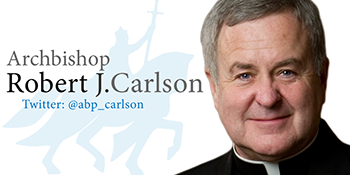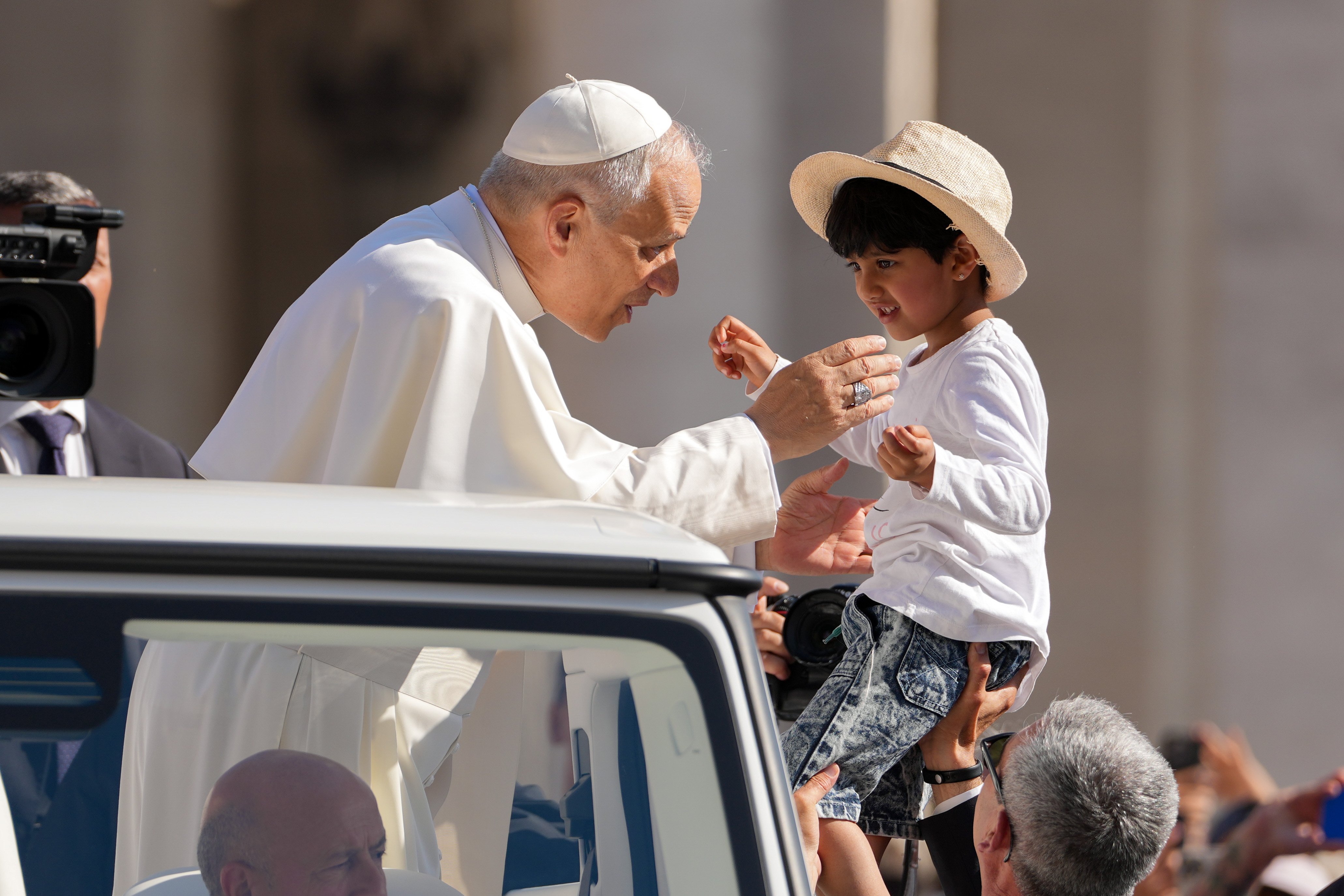BEFORE THE CROSS | Words describing the mission of the laity echo the language of the Mass
The ordained priesthood and the baptismal priesthood are meant to work together to be laborers for the harvest

When Jesus sent out the 72 disciples, He said: “The harvest is abundant but the laborers are few; so ask the master of the harvest to send out laborers for his harvest.” (Luke 10:2)
We usually interpret that text in terms of asking God to send us a sufficient number of ordained priests. That’s good — we certainly need ordained priests. But there’s a need to call forth the baptismal priesthood of the laity to help with the harvest as well. What is this baptismal priesthood (also known as the priesthood of all believers) and how do lay people exercise it?
Many think first of the ministries in which lay people participate during Mass, such cantor, lector, extraordinary minister and more. The Mass roles are all a great blessing, both for the person and the Church. But they aren’t the first thing that should come to mind.
Don’t get me wrong — I’m glad we have lay people involved in Church ministries. But the main way that lay people are called to exercise their baptismal priesthood is bringing Christ into their home, work, neighborhood, friendships and the public square. A dutiful police officer, banker, cashier or plumber who brings Christ into his or her daily work and generous, attentive parents who bring Christ into the daily routine of family life are exercising the baptismal priesthood just as much as any liturgical minister or Church employee. In fact, liturgical ministries are meant to sharpen a person’s ability to carry Christ into the world: for a cantor to sing God’s praise in all she does, for a lector to carry the Word of God into his daily conversations, for a minister of hospitality to welcome Christ in the neighbor or stranger all week long.
In describing the mission of the laity, the Catechism of the Catholic Church uses very deliberate priestly language:
“(A)ll their works, prayers, and apostolic undertakings, family and married life, daily work, relaxation of mind and body, if they are accomplished in the Spirit — indeed even the hardships of life if patiently born — all these become spiritual sacrifices acceptable to God through Jesus Christ. In the celebration of the Eucharist these may most fittingly be offered to the Father along with the body of the Lord. And so, worshipping everywhere by their holy actions, the laity consecrate the world itself to God, everywhere offering worship by the holiness of their lives.” (CCC 901)
The Catechism states the laity “consecrate the world to God” — a deliberate echo of the consecration of bread and wine carried out by the ordained priest. It also states that the entire life of lay people is brought to the Lord and offered as “a spiritual sacrifice acceptable to God through Jesus Christ” — another deliberate echo of Eucharistic language.
The ordained priesthood and the baptismal priesthood are meant to work together. Both are necessary, and the situation of the Church today calls for a more deliberate coordination of their activities and gifts. Together, let’s ask the master of the harvest to send us out as laborers for the harvest — each in our own proper way.
When Jesus sent out the 72 disciples, He said: “The harvest is abundant but the laborers are few; so ask the master of the harvest to send out laborers for … BEFORE THE CROSS | Words describing the mission of the laity echo the language of the Mass
Subscribe to Read All St. Louis Review Stories
All readers receive 5 stories to read free per month. After that, readers will need to be logged in.
If you are currently receive the St. Louis Review at your home or office, please send your name and address (and subscriber id if you know it) to subscriptions@stlouisreview.com to get your login information.
If you are not currently a subscriber to the St. Louis Review, please contact subscriptions@stlouisreview.com for information on how to subscribe.



